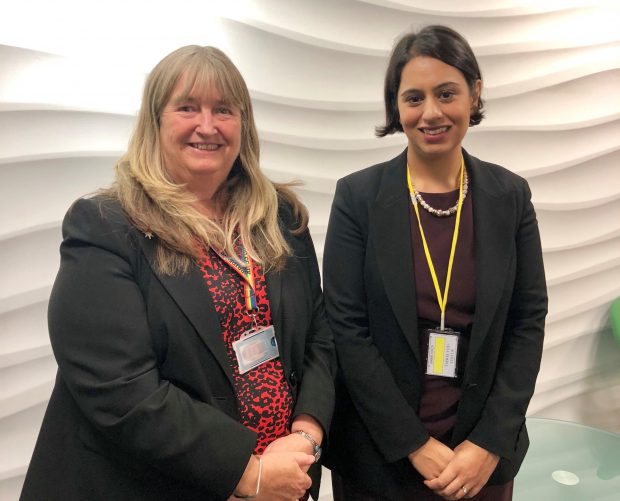
Last week we visited Cardiff to hear first-hand from the Welsh Government, its partners and civil society groups about the challenges they face and the work they are doing countering extremism.
Wales has difficult issues to deal with.
Over the course of a few years a small but high-profile number of young Muslim men left Cardiff to join Daesh in Syria, while last year Darren Osborne drove into worshippers outside a north London mosque in a van he hired from the village of Pontyclun in South Wales.
It is rare that incidents such as these happen out of nowhere. Islamist extremists and the far right have pushed their divisive worldviews in Wales over the last decade, as they have elsewhere, spreading hatred and fear and often targeting young people.
Two of the young men who appeared in a Daesh propaganda video had previously been drawn into Anjem Choudary’s longstanding Cardiff network and their local mosque later came under criticism for hosting extremist clerics.
On the far right, Welsh bands that praise Nazism and white power are part of an influential hate-based music scene in the country and children are being targeted through far right youth activities.
As we heard in Wales last week, extremism is not just manifested as terrorism.
Those on the ground raised concerns about growing intolerance in their communities – including racist language being used by children in primary schools and teachers lacking the support to challenge it. We heard how Islamist and far right groups prey on people’s concerns to gain sympathy for their cause, and we were concerned by reports that children aren’t reporting hateful incidents, with one volunteer describing a culture of normalisation.
But in the face of this challenge, there are inspiring examples of work to promote belonging and civic engagement.
Community groups talked about working with well-known footballers in schools to kickstart conversations about racism and extremism and told us how they could demonstrate its effectiveness in building resilience.
We were struck by the passionate work of trade unions in tackling extremism, through encouraging a zero-tolerance approach to discrimination and hate in the workplace. Across a range of initiatives – for ex-offenders, for Syria refugees and for ex-service people – there was a collective will to tackle hatred and extremism.
The Welsh government and local authorities told us how they were using safeguarding processes to provide help where it was needed, through schools, social services or prisons and in local areas and communities.
We heard examples of good practice in tackling hate crime, such as improvements to reporting and measuring mechanisms. Educationalists praised UNICEF’s Rights of the Child as a good framework for promoting human rights among young people, and many spoke of the opportunities offered by the review of the Welsh school curriculum.
They also told us about the challenges. Challenges such as a lack of funding, particularly for those working outside of Cardiff.
We heard concerns that teachers and social workers aren’t receiving adequate training, and about the difficulties in providing up to date material.
Community groups and trade unions told us about fears around the Punish a Muslim Day letters – especially among Muslim women travelling to work that day – and stressed the need for more vocal reassurance for communities and workers. Some of those around the table raised concerns that many working in counter-extremism failed to reflect the diversity of the many communities and areas they engage with.
We want to build understanding, grow consensus around extremism and help strengthen the response to extremism – and we look forward to working with colleagues in Wales to make this happen.
Crucial to building understanding, is shining a light on the victims of extremism.
Last week we also met with Michael Evans – who founded the SAFE project at the charity Faith Matters to support the families of those affected by extremism. As Michael, whose brother died fighting for terrorist group al-Shabaab knows first-hand, families are among the unrecognised victims of extremism. We were struck by his dedication to helping families access the counselling and support they need.
These stories of extremism, the harm it causes, and the work being done to challenge it need telling. A couple of weeks ago we published a plan for our upcoming study into extremism, and we will shortly be giving everyone the chance to share their experiences when we open a public call for evidence.
Recent Comments